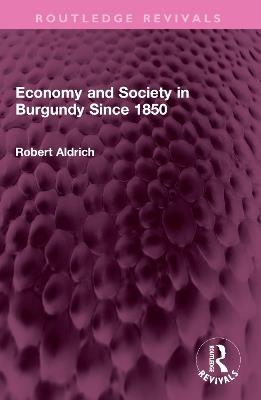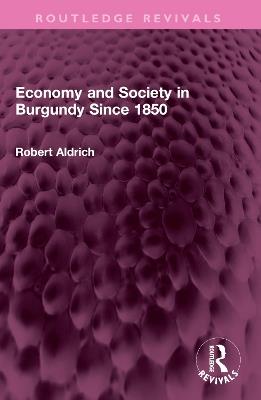Economy and Society in Burgundy Since 1850
First Published in 1984 Economy and Society in Burgundy Since 1850 provides a comprehensive overview of the modern history of Burgundy. Burgundy is best known for its wine and its capital of Dijon is most often associated with mustard. Yet the region’s modern history is more than a history of gastronomy. The coming of the railways in the 1850s greatly changed the economic life of the area, spurring the growth of Dijon and contributing to rural depopulation. Agricultural crises throughout the nineteenth century, such as phylloxera epidemic in the vineyards, caused further dislocation in rural life. Even in the twentieth century, the countryside remained agricultural while the city of Dijon owes its dynamism to the expansion of the service sector rather than to heavy industry. This book argues that this evolution -modernisation without industrialization- is not a matter of economic retardation but of the suitability of the region’s natural resources and the intentional choice of its population. Rich in archival sources this book is an interesting read for scholars and researchers of French history, European history, and modern history.
-
Autore:
-
Editore:
-
Collana:Routledge Revivals
-
Anno:2024
-
Rilegatura:Paperback / softback
-
Pagine:260 p.
Le schede prodotto sono aggiornate in conformità al Regolamento UE 988/2023. Laddove ci fossero taluni dati non disponibili per ragioni indipendenti da Feltrinelli, vi informiamo che stiamo compiendo ogni ragionevole sforzo per inserirli. Vi invitiamo a controllare periodicamente il sito www.lafeltrinelli.it per eventuali novità e aggiornamenti.
Per le vendite di prodotti da terze parti, ciascun venditore si assume la piena e diretta responsabilità per la commercializzazione del prodotto e per la sua conformità al Regolamento UE 988/2023, nonché alle normative nazionali ed europee vigenti.
Per informazioni sulla sicurezza dei prodotti, contattare productsafety@feltrinelli.it




